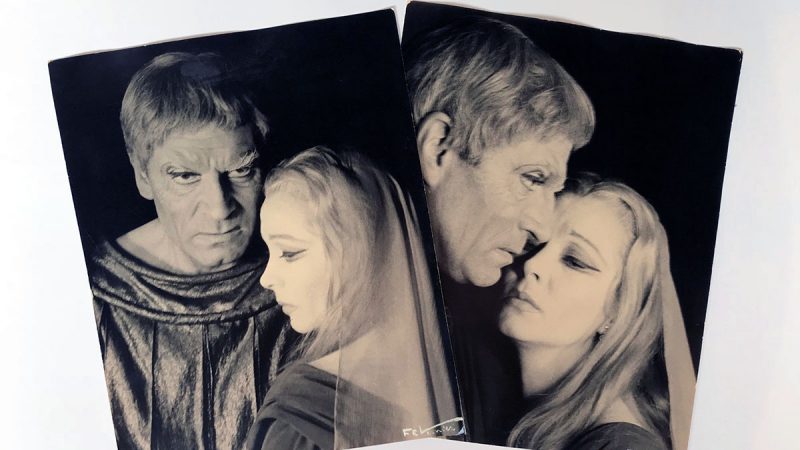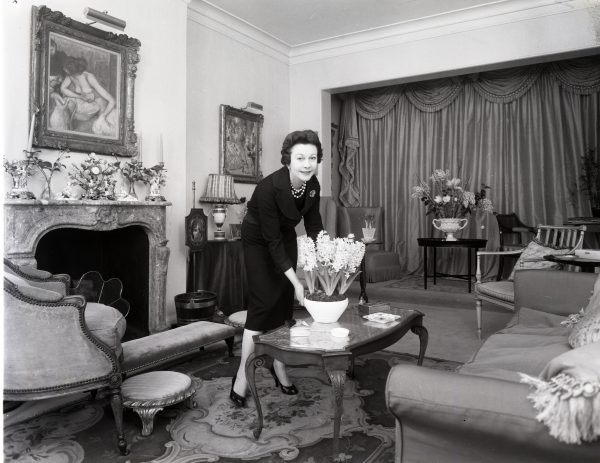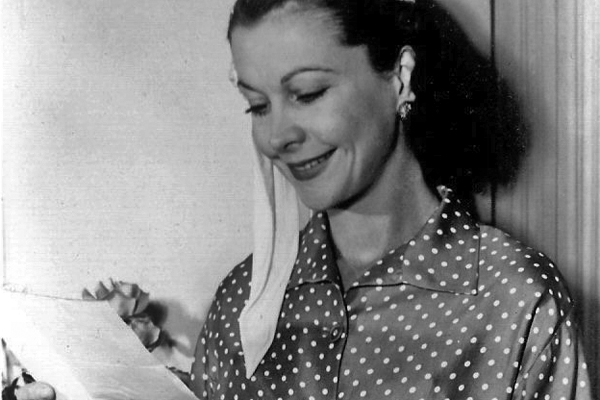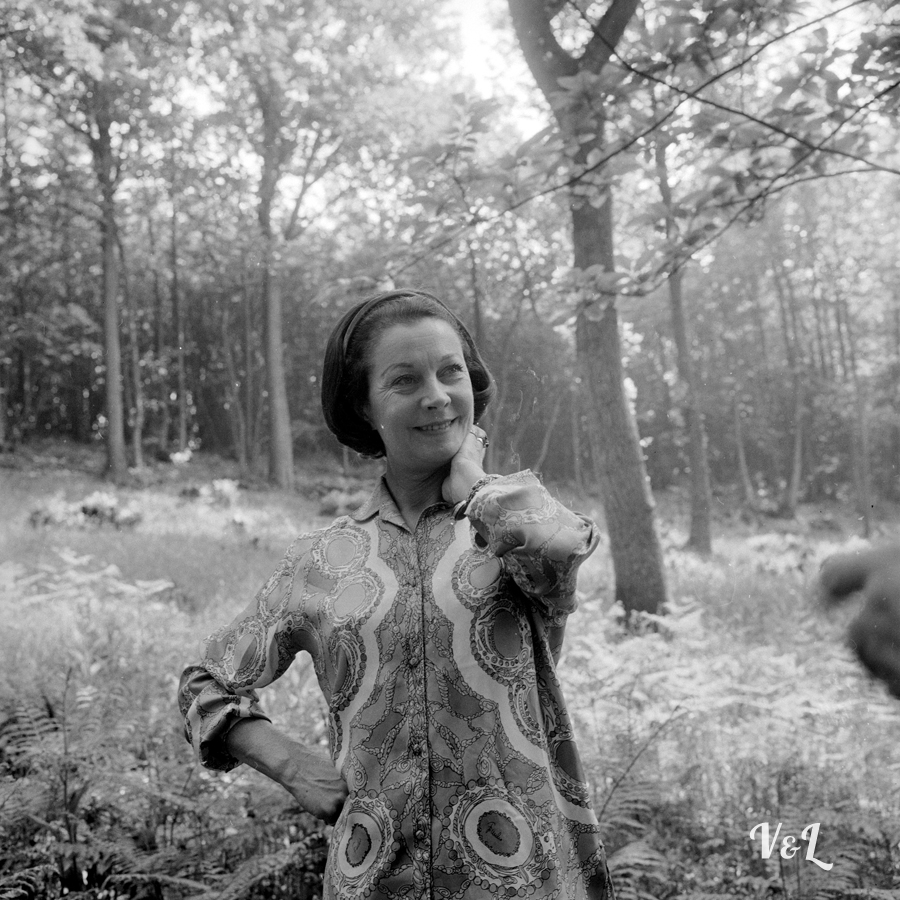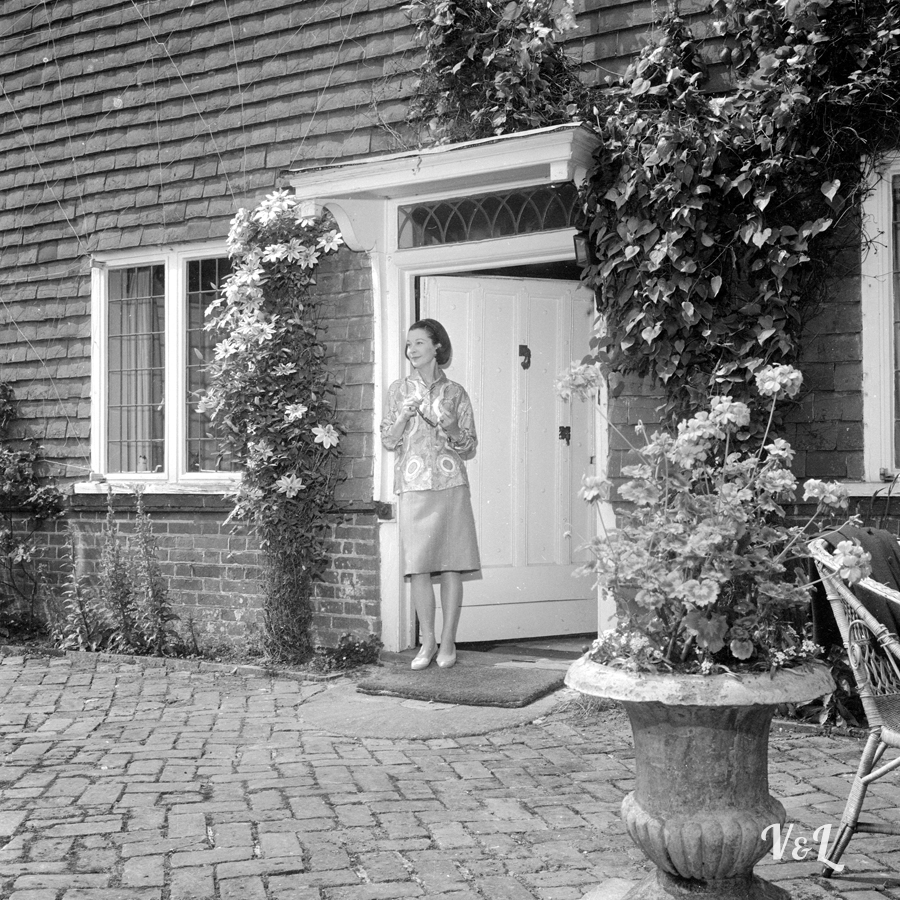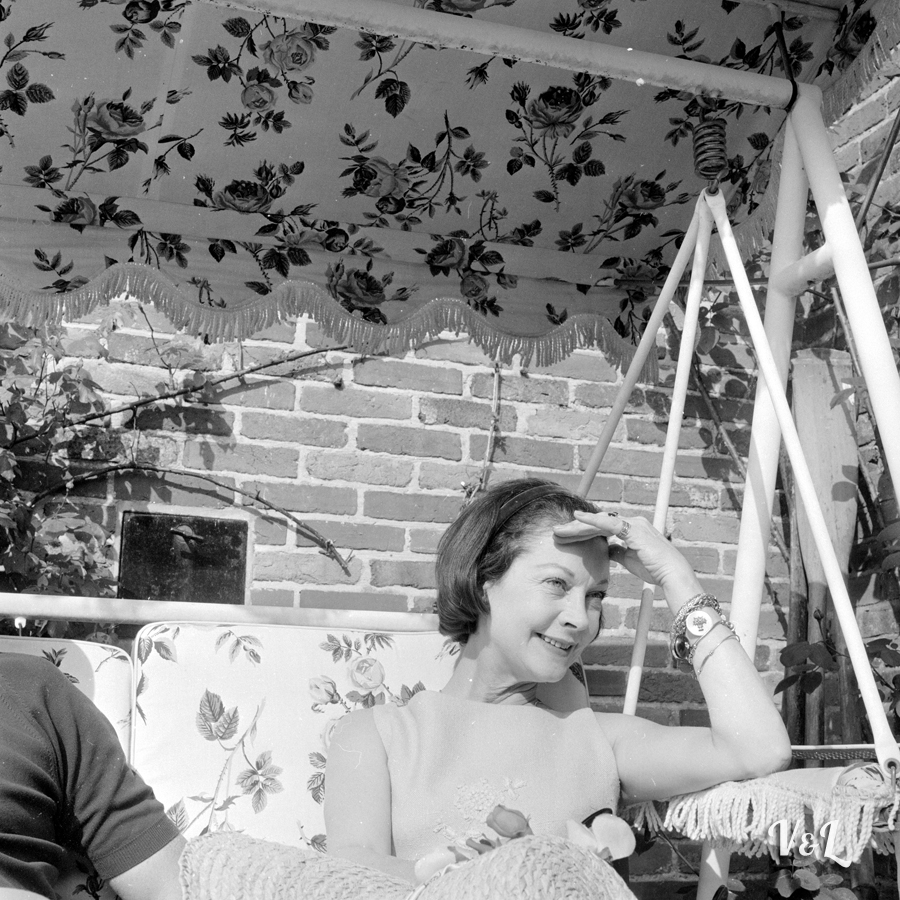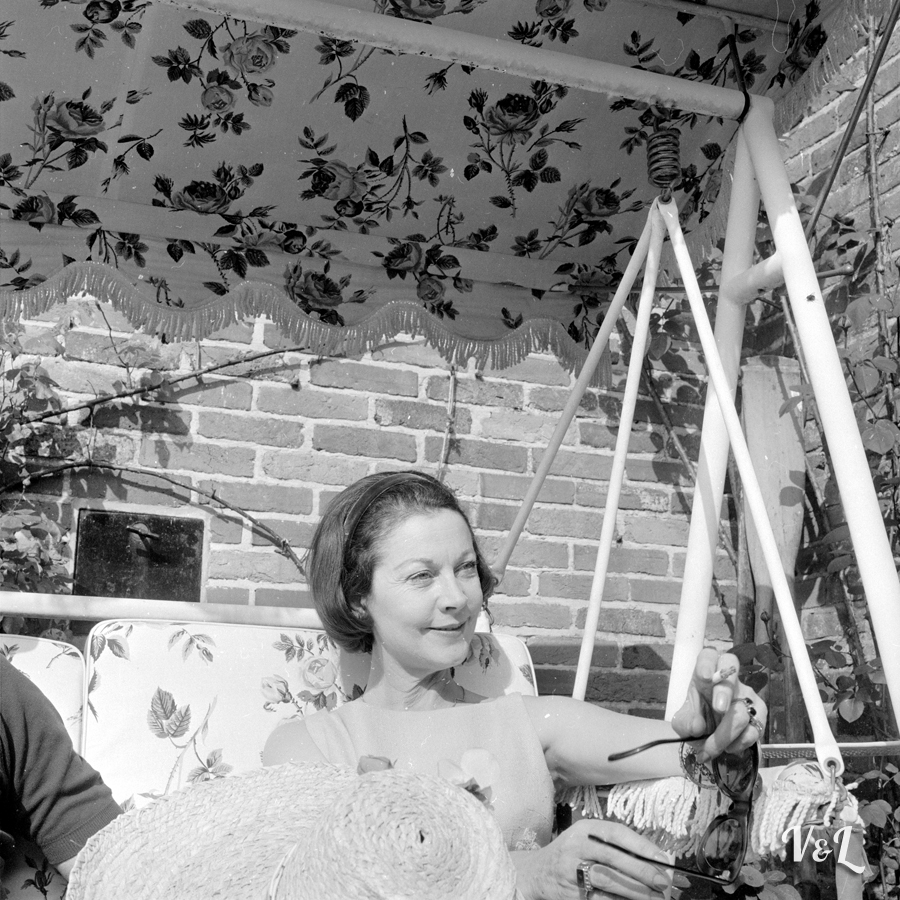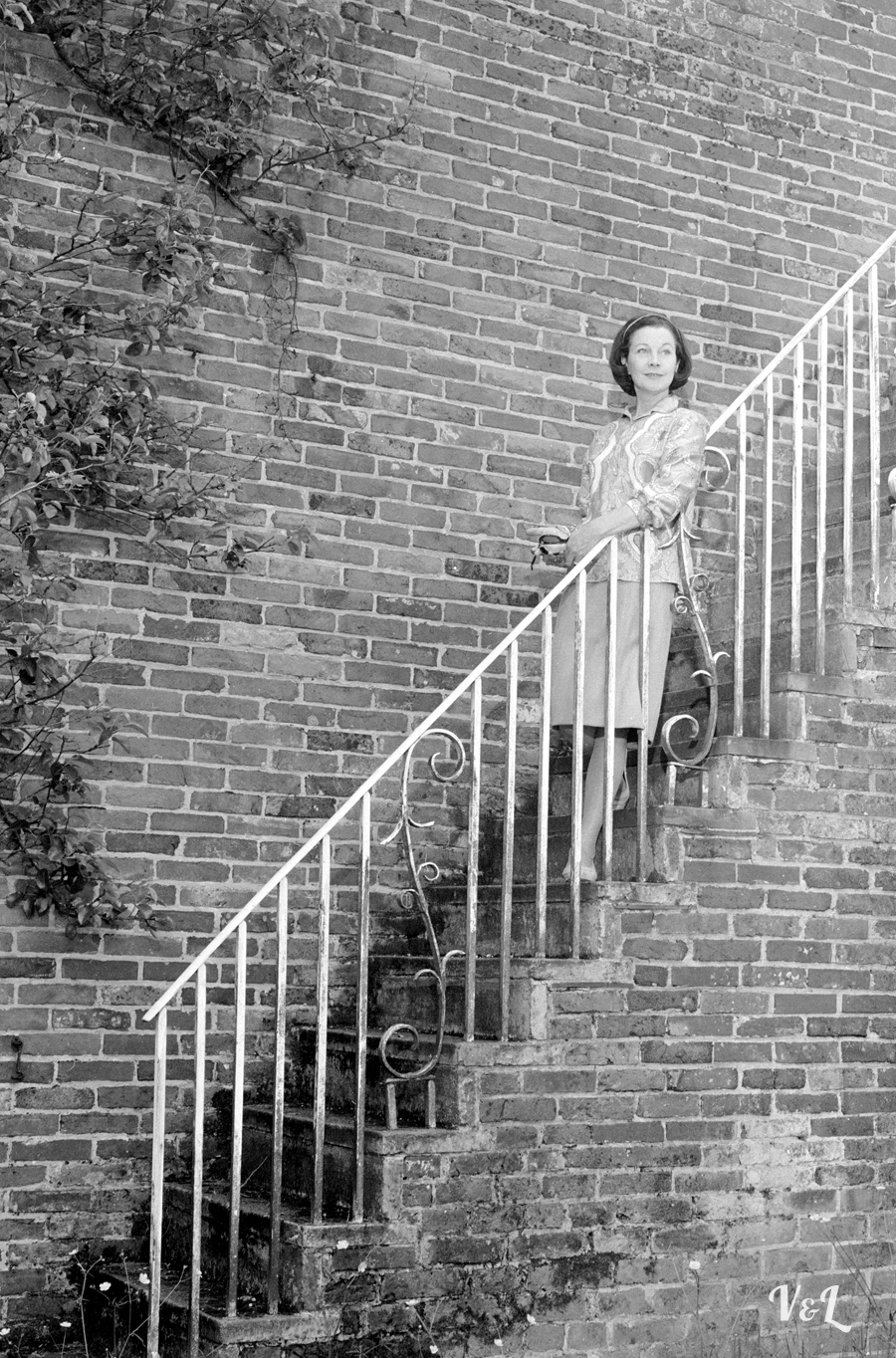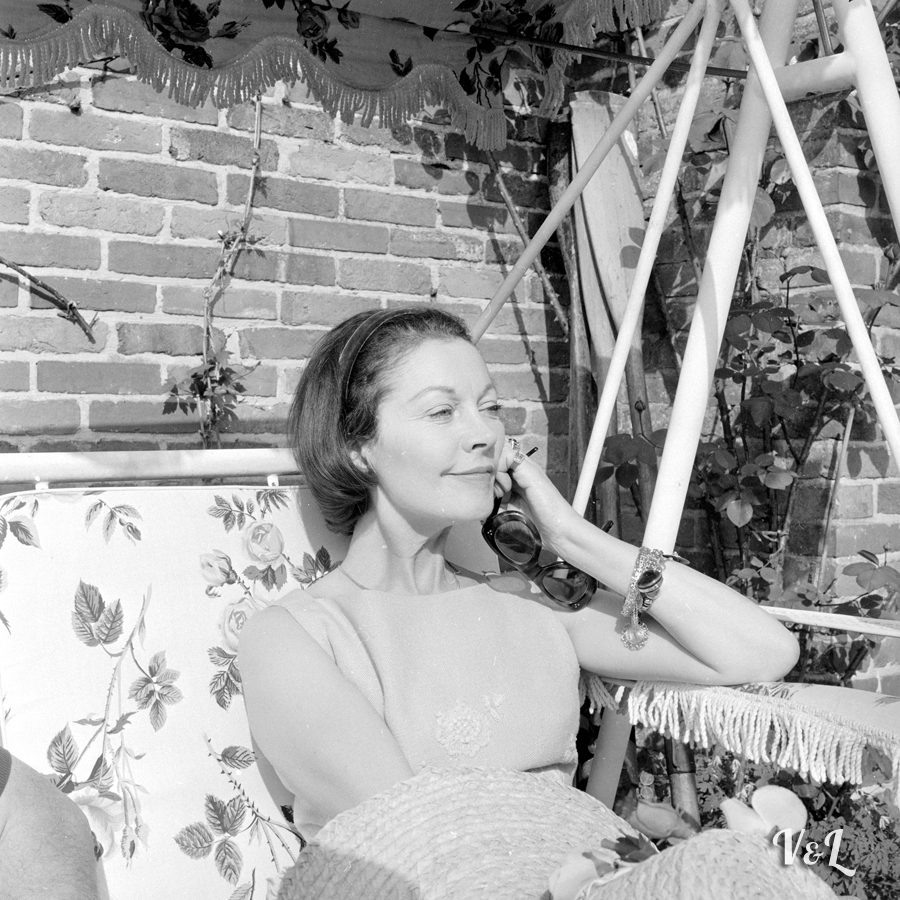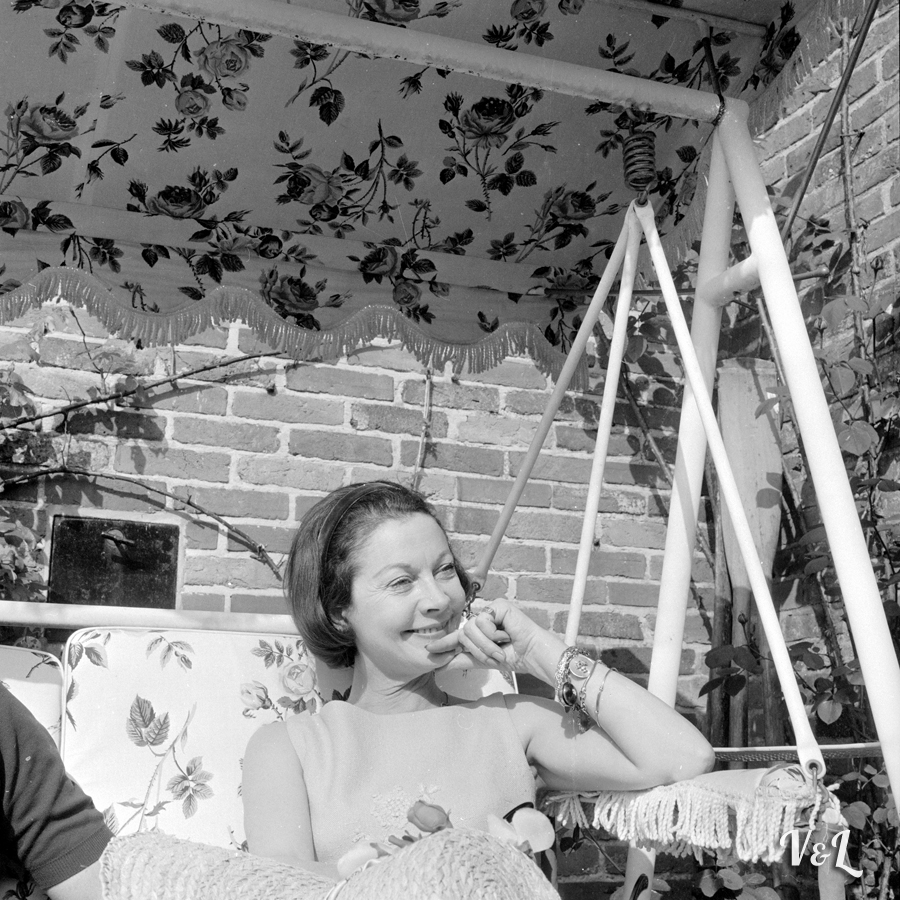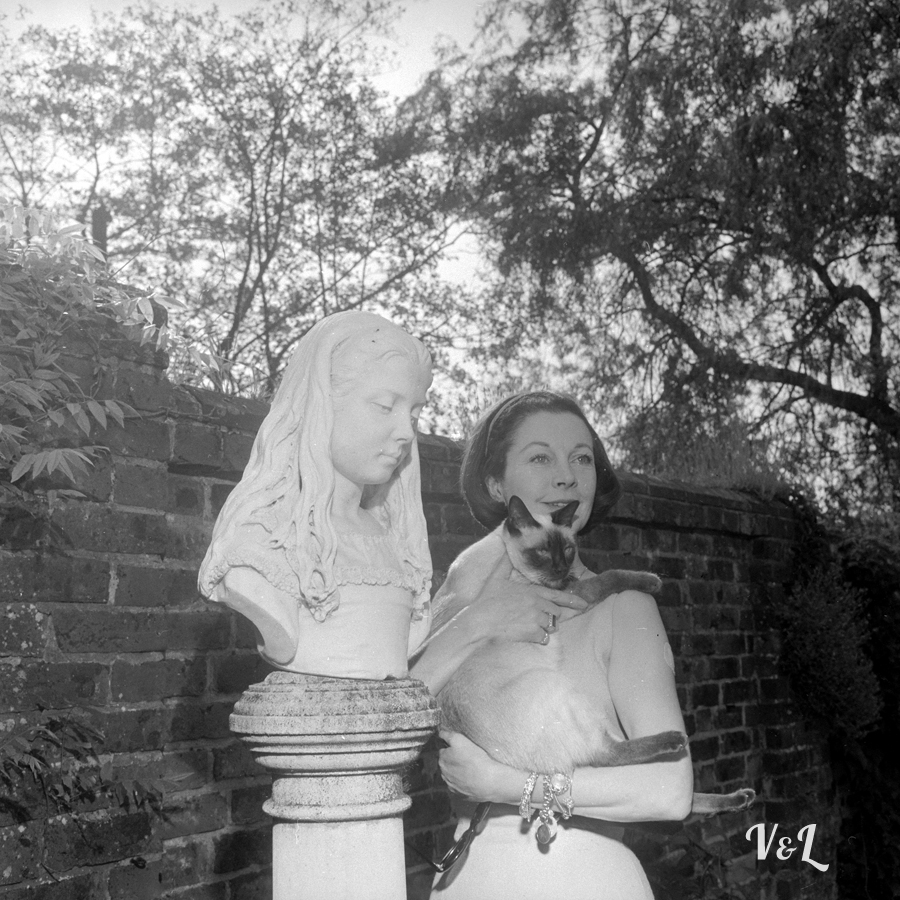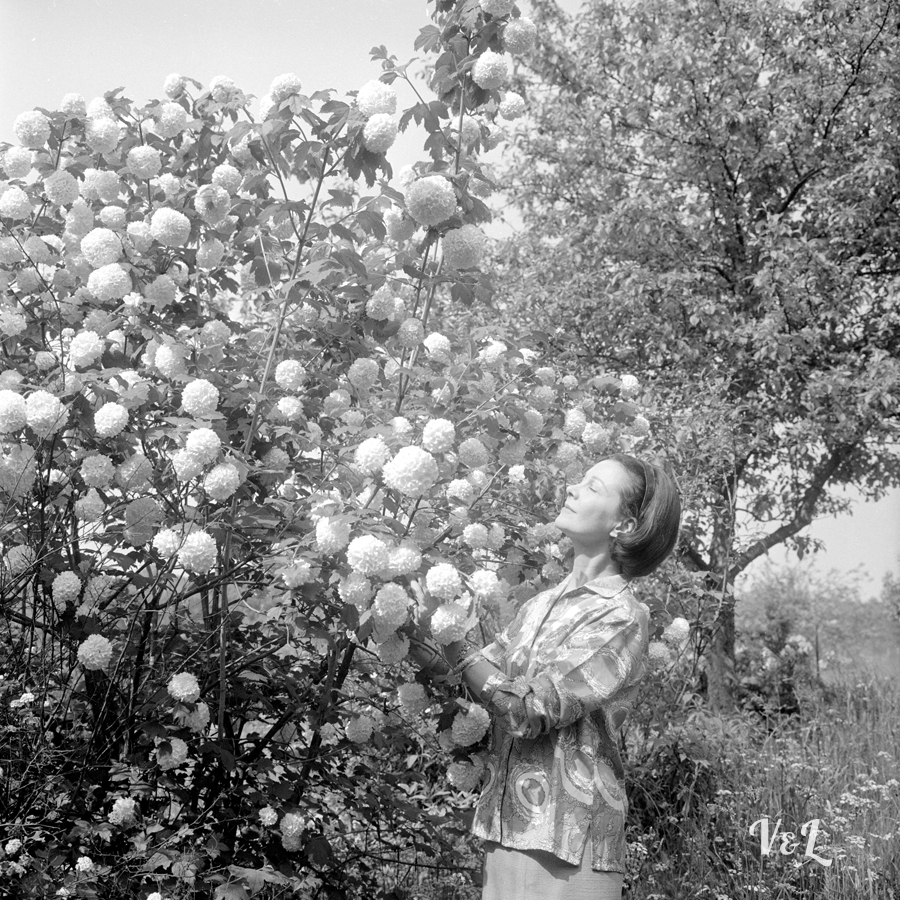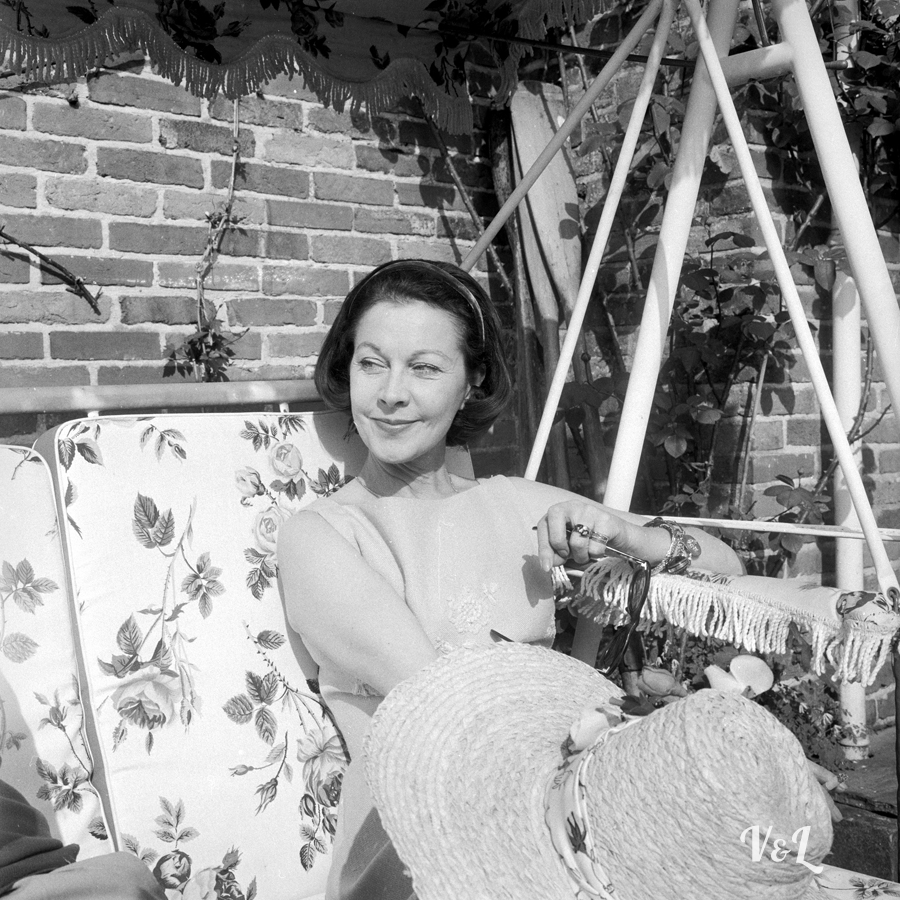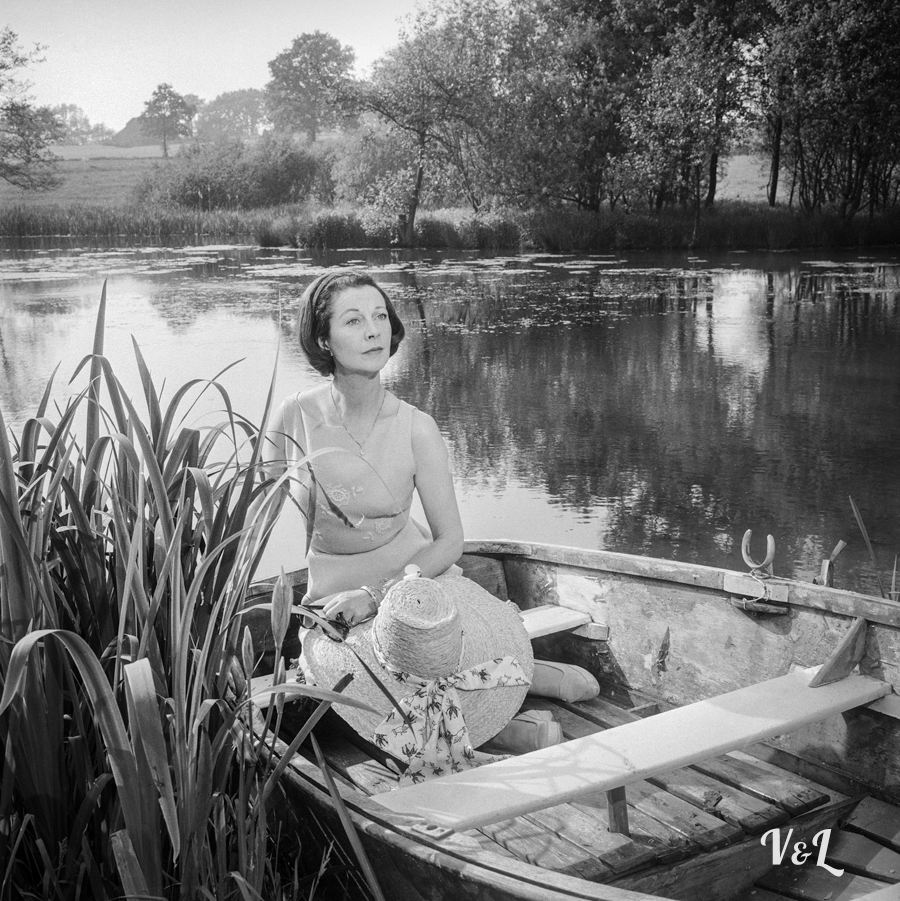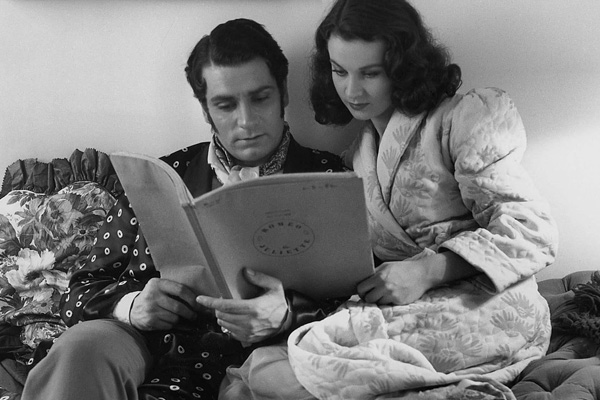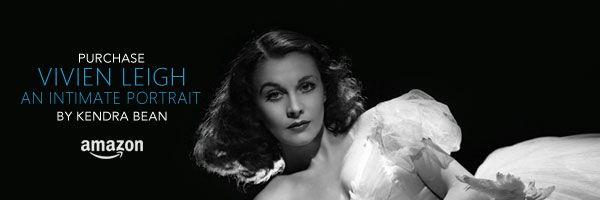collecta-belle featured the oliviers
Tag: Featured
Winston Churchill’s ‘Marvellous’ Gift to Vivien Leigh
Sotheby’s recently announced a major sale of objects from the Vivien Leigh estate. On September 26, paintings, jewellery, photographs, clothing, furniture, and other valuables belonging to the late Oscar-winning actress will go under the hammer here in London. Among the treasures that Vivien’s family have kept all these years is an oil painting by Vivien’s friend, the former Prime Minister Winston Churchill.… Continue reading
The Ultimate Fan Letters
I’ve spent a fair bit of time these past few weeks in the V&A and British Library going through fan letters written to Vivien Leigh. It’s research for my chapter in the upcoming V&A/Manchester University Press book Vivien Leigh: Actress and Icon, but I’m also getting pleasure from reading these letters. As a fan who interacts with a lot of other fans on this crazy platform called the Inter Web, I know that we come in all ages, shapes, sizes, nationalities, sexualities, religions, etc. We are all bound together by our mutual interest in Vivien Leigh.
Yet despite my admittance to being a fan, I’ve never written a fan letter to anyone (save for the one I drafted to Leonardo DiCaprio at age 14 and recorded in my middle school diary that I was too nervous to send as my mom probably wouldn’t approve because she thought I was ‘obsessed.’ I was). And I’m not sure, if I had been alive during Vivien’s time, that I would have written one.
The fan letters in Olivier’s and Leigh’s respective archives bring out a range of feelings – wonder at the poetic, eloquent language used by even young people, and the far corners of the globe from which they were sent (India, Japan, Korea, South Africa, Australia); shock at the audacity of some of the writers; happiness at the little gifts of affection sent from around the world and the truly astonishing drawings included in some of the letters. One thing is clear: Vivien was adored by film lovers and theatre-goers far and wide, and they thought her accessible. And while they were just temporary blips on her radar, Vivien meant everything to her fans.
I’m posting the transcribed text from two letters here which have emerged as my favorites thus far. They’re wildly different. The first was penned by a young soldier in the National Service just after the war. The other, by a seven-year-old boy in Australia whose mother, Flora Griffiths, was a frequent correspondent.
What do you think of these letters? I’d love to read your responses below.
November 9, 1946
Dear Miss Leigh, Lady Olivier, what you will,
I am sorry that it has come to this: I despise all fan mails and all fans as a general principle and so I despise myself for writing; tomorrow I shall regret it and say what a fool I have been. What is it that makes me write to night, I do not know: perhaps it’s loneliness, perhaps it is the remains of an adolescent crush, perhaps, and I hope, it’s just a foolish, youthful impulse – for I’ve tons of these and I am, thank God, young.
Then what one should say in a fan mail I don’t know: I could tell you that you are the best actress and the most beautiful thing in this hurly burly world, I could compare you with the sheer beauty of the pale moonlit hills: all these things would be true perhaps – true at least in my mind, but I’ve no doubt Mr. Olivier and others have imaginations too. I’m not jealous, for I have a little sense in my young head. But I would like to tell you one thing and if you haven’t already torn this up, just listen a moment and I’ll let off steam.
Here am I, a conscript in an ugly camp, remote from all the folk and things I love, watching all my principles of art and pure thought get dashed and square bashed to the ground: just now and then I look back home, as every soldier does, and then when the others look back to their respective sweethearts — I don’t. I look to an ideal of culture, of physical beauty and of intellectual [illegible]. I see you very clearly: I don’t want to dash and throw myself at your feet and say ‘Vivien, I love you’ or anything: I just want to see you and know that beauty, real active living beauty is still in the world. And all I want to do now, is tell you that you give me great confidence in the world. You are one of my loveliest memories: One day I’ll marry and love someone, perhaps with dark hair and light expressive eyes, but I promise you now that you’ll still hold a place in my memory box. So thank you.
You’ve probably lost interest so I’ll let off more steam: You realize, I suppose, why Romeo and Juliet failed? Because you thought you could do it without acting to the satisfaction not only of yourselves but of the public. You were wrong and maybe then you decided not to act Shakespeare together again – for I don’t think you have, have you? So by one failure you are disheartened and you are coward enough, the pair of you, to quit a possible production of absolute and complete perfection. Do you not realize that only once in a million years could such a pair as you and Mr. Olivier meet and act? Do you not realize that you have a chance of setting up a romantic masterpiece, the like of which has never been seen? And yet you create only good performances singly, throwing away this chance of perfection. I like to think of you smiling, but only because I know your talent: I like to think of Mr. Olivier as the brave Henry V, but only because I realize he could be other things.
There is a play better than Hamlet; far far better than your Lady Hamilton, and it is time somebody did it properly. It’s called Macbeth: I know it backwards because I’ve studied it (and I mean study) and because I’m a Scotsman and understand. I know I could create a film given the suitable actors and actresses which would be more than a nine days tale. Mr. Olivier has once ruined the part by ranting in the last act but he would know better by now. If I am so confident, surely he could bring the thing about. You could get the experts to give you colorful sets, which would certainly ruin the thing unless they found someone who understood the thing and could control them. But supposing they were careful and were controlled, and deciding you two did decide not to throw away a chance in a hundred centuries, the history of films would be…dated as Before and After Macbeth.
Are you still reading? If so, use your own judgment and choose one of the two courses.
a) leave a passionate adolescent to stew in his own nonsense.
or b) encourage an idealist.
If a) is chosen, stop reading. If b), continue.
When I started this letter I said to myself, I won’t lower myself to asking for a reply: I still don’t. I leave it to you. (But I promise you that this letter was not written for the sake of this final paragraph). You can write me a stereotype letter with photo attached – but for God’s sake don’t autograph it in front, for that would bring you to the same place as Miss Grable’s legs or Miss Lake’s [illegible]. Give me it in the usual way, only untouched and I will keep it as the symbol of the idealist and philosopher of beauty. I will keep it with a picture of the mountains in the rain, that I have, as another side to nature.
But use your motherly judgment, Mrs Olivier. Don’t send it if you think it’s bad for me. I leave the address in the vain hope: some day, some happy day when I see a stage and have the additional fortune of seeing you on it, I’ll come round behind the stage and look sheepish, and say I enjoyed the show, and shift from one foot to the other. No, I don’t think I will.** Anyway, you’re very beautiful as I see you now: as Lady Macbeth you’d look wonderfully villainous though – or can’t I tempt you?
I’ve let off steam, I’ve acted on the impulse: there remains only the question of stamp and address. Then bonsoir, et encore une fois madame, grand merci. Vous étés un joli rêve. Yours with all necessary apologies and with I fear, sincere affection.
1706700 Ptc Kennaway J(ames)
10 pln 2 Coy, 30th training Batt.
Pinefields Camp, Elgin, Morayshire
** It is unknown whether James Kennaway ever saw Vivien perform on stage. The future novelist and screenwriter was 18 when this letter was written. However, it is quite possible that they crossed paths at some point in the 1960s. Kennaway’s first novel, Tunes of Glory, which was partially based on his experience in the armed forces, was made into a film in 1960, starring Alec Guinness and directed by Ronald Neame. Sadly, Kennaway died unexpectedly at age 40 in 1968.
June 17, 1957
Dear Lady Olivier,
I am seven now and I thought I would write to you. Mummy said you live in London where the King lives. Once Prince William and Prince Richard lived in Australia. When I am a man I shall come to London to see you because you are so lovely and Sir Laurence is a beaut sword fighter, he is like a Knight in my King Arthur book. When you come to Australia will you tell me first. Sir Laurence is going to tell the Melbourne boys. The sea is very rough and it is rainy tonight so we have to stay inside. I hope you like your pineapple. I love it. We do not seem to send anything to Sir Laurence perhaps Mummy does not know what he likes, my Dad sometimes likes beer.
I will write again soon,
Love from
Philip Blackburn Griffiths**
Semaphore, South AustraliaWould you ask Sir Laurence if he had time to write me and tell me how to sword fight.
P.S. Later. We have had snow in the hills the most for 50 years. Mummy said we were not here then. I have never seen snow if we had a car we could have got to Mt. Lofty before it melted. Please if you do not save stamps will you keep this one for me and I will get it when I come to London.
**A photograph of Philip, attached in one of his mother’s letters to Vivien, showed a blonde haired boy in a cowboy costume, looking quite like Ralphie from A Christmas Story.
Speaking of Christmas, I’d like to wish you all a merry one, or a happy whatever you celebrate!
featured photo essay vivien leigh
Summer at Tickerage Mill
Vivien Leigh’s country estate, Notley Abbey, was sold in 1960 pending her divorce from Laurence Olivier. While on the hunt for a new country retreat, her friend, the actor Dirk Bogarde, told her of a gorgeous Queen Ann-style house in the Sussex downs. It was too small for him, he said, but she might love it. Love it Vivien did, and she moved in with Jack Merivale in 1961.
Although Tickerage was very much a private space, Vivien occasionally allowed photographers into her country life. Thomas Wilkie and George Douglas were two such photographers. I profiled Douglas here last summer when it was announced that his archive had been discovered by Shan Lancaster and Guardian photographer Roger Bamber in Brighton. Since then, I’ve had the privilege to get to know Shan and follow the great work she and Roger are doing to raise George Douglas’ profile.
In a mutually beneficial effort to help spotlight Douglas’ wonderful work, and because everyone likes pretty pictures, here is the full set of Douglas’ shoot of Vivien Leigh as found (thus far) in the George Douglas Archive. (Getty Images are also licensing some of Douglas’ color photos from this shoot via the Popperfoto collection.)
“Good news of Tickerage every week, which I long to see again.” – Vivien Leigh to Radie Harris, February 6, 1962
“Tickerage Mill was just as romantic a setting as Notley, if on a smaller scale. The lake close to the house provided for her the essential ingredient of water always present, and she assured me that she was comforted by the knowledge that it was there, even when obscured by the mist of autumn, the winter fogs. There was also a miniature wood filled with carpets of anemones and bluebells that she had planted, which burgeoning in the spring might have been created for Titania [the character Vivien played in A Midsummer Night’s Dream in 1937]. Like my mother, Vivien had green fingers, and in an enviously short time, the garden, which had been sadly neglected till the arrival of the new owner, took on a blossoming look of someone who knows that she is cherished.” – Godfrey Winn, 1965
“Another beautiful album of Tickerage for Vivien! It really is stunning and she is delighted with it, as I have no doubt she has told you in the letter which Jason and I have just walked up the lane to post…All is well here I think. We have had our dramas; the Cooks, who have been with Vivien for eleven years as gardener and ‘help’, upped and left and the cottage has been empty for a month. However the replacements arrived yesterday to start work to-morrow and if they are satisfactory we shall at last be able to go to the big city for a few days and catch up on some shows. We have hardly left the place for weeks. Also the poodle ran away last week and got run over for his pains poor chap. Luckily not much damage done except that he was concussed and had amnesia. He came back yesterday from the kennels in Buxted and seems fairly all right. I say ‘fairly’ because we think he still has a touch of amnesia since he forgot himself in the kitchen before lunch in a pretty substantial way.” – Jack Merivale to Arnold Weissberger, October 10, 1965
Commonplace Books of Vivien Leigh and Laurence Olivier
In December 1946, Vivien Leigh and Laurence Olivier were chosen by Strand magazine in London to contribute literary quotes from their personal Commonplace Books. Commonplace Books (commonly referred to today as “inspiration journals”) are blank notebooks that differ from traditional diaries in that they’re not meant to record life events in a chronological order. Rather, they’re a random hodgepodge of thoughts, quotes and passages from books, sketches, recipes, etc. that made an impression in the moment.
Strand printed a running series called “The Commonplace Books of…” where “Every month [they] publish quotations from the Commonplace Books of people whose names you know and whose wide reading you envy.” While the choice of works the Oliviers quote from may seem familiar from what we have read about them in biographies, what is interesting is what these particular quotes reveal about their individual personalities. To me, Vivien seems like a dreamer, whereas Larry Olivier comes off as a romantic.
What do you think of this list?
Vivien Leigh
Entries in my Commonplace Book are very varied and I am continually adding to them. My favorite quotations include “The Cloths of Heaven” by W. B. Yeats:
Had I the heavens’ embroidered cloths
Enwrought with gold and silver light,
The blue and the dim and the dark cloths,
Of night and light and the half light,
I would spread the cloths under your feet;
But I, being poor, have only my dreams;
I have spread my dreams under your feet;
Tread softly because you tread on my dreams
And that memorable sentence on the death of William III, the last sentence in J. L. Motley‘s “Rise of the Dutch Republic”:
As long as he lived, he was the guiding star of a brave nation, and when he died the little children cried in the streets.
In humorous prose I like the entry of April 23rd in “The Diary of a Nobody” by George and Weedon Grossmith:
Mr. and Mrs. James (Miss Fullers that was), came to meat-tea, and we left directly after for the Tank Theatre. We got on a bus that took us to King’s Closs, and then changed to one that took us to the Angel. Mr. James each time insisted on paying for all, saying that I had paid for the tickets and that was quite enough.
We arrived at the theatre, where, curiously enough, all our bus-load except and old woman with a basket seemed to be going in. I walked ahead and presented the tickets. The man looked at them, and called out “Mr. Willowly! Do you know anything about these?” holding up my tickets.
The gentleman came to, came up and examined my tickets and said: “Who gave you these?” I said rather indignantly: “Mr. Merton, of course.” He said: “Merton? Who’s he?” I answered rather sharply, “You ought to know, his name’s good at any theatre in London.” He replied: “Oh! is it? Well it ain’t no good here. These tickets, which are not dated, were issued under Mr. Swinstead’s management, which has since changed hands.”
While I was having some very unpleasant works with the man, James, who had gone upstairs with the ladies, called out: “Come on!” I went up after them, and a very civil attendant said: “This way, please, Box H.” I said to James: “Why, how on earth did you manage it?” And to my horror he replied: “Why, paid for it, of course!”
This was humiliating enough, and I could scarcely follow the play, but I was doomed to still further humiliation. I was leaning out of the Box, when my tie – a little black bow which fastened on to the stud by means of a new patent – fell into the pit below. A clumsy man not noticing it, had his foot on it for ever so long before he discovered it. He then picked it up and eventually flung it under the next seat in disgust. What with the Box incident and the tie, I felt quite miserable. Mr. James, of Sutton, was very good. He said: “Don’t worry – no one will notice it with your beard. That is the only advantage of growing one that I can see.” There was no occasion for that remark, for Carrie is very proud of my beard.
To hide the absence of the tie I had to keep my chin down the rest of the evening, which caused a pain in the back of my neck.
Of many favorite passages in Shakespeare, I like best of all the last speech of Oberon in “A Midsummer Night’s Dream,” from which these lines are taken:
Never more, hair, nor scar,
Nor mark prodigious, such as are
Despised in nativity,
Shall upon their children be.
And the 29th Sonnet, beginning,
When, in disgrace with fortune and men’s
eyes,
I alone be weep my outcast state…
I have read a great deal of Thomas Hardy and Dickens. The chapter on sheep-shearing in “Far from the Madding Crowd” ranks, I think, among the finest descriptive writings. With these I also place the beginning of “The Battle of Life” from Dickens “Christmas Books” – the description of the field from which “the painted butterfly took blood into the air upon the edges of its wings.”
For pure joy of reading I choose the reunion scene at the end of “Pickwick Papers”:
…. The coaches rattled back to Mr. Pickwick’s to breakfast, where little Mr. Perker already awaited them.
Here, all the light clouds of the more solemn part of the proceedings passed away; every face shone forth joyously, and nothing was to be heard but congratulations and commendations. Everything was so beautiful! The lawn in front, the garden behind, the miniature conservatory, the dining-room, the praying room, the bedrooms, the smoking room, and above all the study with its pictures and easy chairs, and odd cabinets, and queer tables, and books out of number, with a large cheerful window opening upon a pleasant lawn and commanding a pretty landscape, just dotted here and there with little houses almost hidden by trees; and then the curtains, and the carpets, and the chairs, and the sofas. Everything was so beautiful, so compact, that there really was no deciding what to admire most.
And in the midst of all this stood Mr. Pickwick, his countenance lighted up with smiles, which the heart of no man, woman, or child could resist: himself the happiest of the group, shaking hands…over and over again with the same people, and when his own were not so employed, rubbing them with pleasure; turning round in a different direction at every fresh expression of gratification or curiosity, and inspiring everybody with his looks of gladness and delight.
And, finally, a quotation from Plato which is, I think, particularly appropriate at the present time:
Then tell me, O Critias, how will a man choose the ruler that shall rule over him? Will he not choose a man who has first established order in himself, knowing that any decision that has its spring from anger or pride or vanity can be multiplied a thousand fold in its effects upon the citizens?
Laurence Olivier
Nearly all of my leisure reading is Shakespeare. May passages from the works of that greatest of poets come to my mind, notably Burgundy’s speech in “Henry V,” Act V, and part of the concluding chorus in the Epilogue, which runs:
Thus far, with rough and all-unable pen,
Our bending author hath pursued the story,
In little room confining mighty men,
Mangling by starts the full course of their glory.
Small time, but in that small most greatly
lived
This star of England: Fortune made his sword;
By which the world’s best garden he achieved,
And of it left his son imperial lord.
Here are four other of my favorite sonnets from Shakespeare’s plays:
Brutus in “Julius Caesar”
(Act IV, Scene iii)
There is a tide in the affairs of men,
Which, taken at the flood, leads on to fortune;
Omitted, all the voyage of their life
Is bound in shallows and in miseries.
On such full sea we are now afloat;
And we must take the current when it serves,
Or lose our ventures.
The Boy’s Song in “Measure for Measure”
(Act IV, Scene i)
Take, O, take those lips away,
That so sweetly were forsworn;
And those eyes, the break of day,
Lights that do mislead the morn:
But my kisses bring again, bring again;
Seals of love, but seal’d in vain, seal’d in vain.
Holofernes in “Love’s Labour’s Lost”
(Act IV, Scene iii)
This is a gift that I have, simple, simple;
a foolish extravagant spirit, full of forms,
figures, shapes, objects, ideas, apprehensions,
motions, revolutions: these are begot in the
ventricle of memory, nourished in the womb
of pia mater, and delivered upon the mellowing
of occasion. But the gift is good in those
to whom it is acute, and I am thankful for it.
The First Murderer in “Macbeth”
(Act III, Scene iii)
The west yet glimmers with streaks of
day:
Now spurs the lated traveller apace
To gain the timely inn; and near approaches
The subject of our watch.
I am also very fond of the two songs dedicated to Spring and Winter which come at the end of “Love’s Labour’s Lost.” Of other poets, Keats has always been one of my favorites. There is a delightful stanza from his “Ode to a Grecian Urn”:
Thou still unravish’d bride of quietness,
Thou foster-child of Silence and slow Time,
Sylvan historian, who canst thus express
A flowery tale more sweetly than our rhyme:
What leaf-fringed legend haunts about thy shape
Of deities or mortals, or of both,
In Tempe or the dales of Arcady?
What men or gods are these? What maidens loth?
What mad pursuit? What struggle to escape?
What pipes and timbrels? What wild ecstasy?
In prose, I share with my wife a liking for both ‘The Diary of a Nobody’ and Hardy’s “Far from the Madding Crowd.” I am an admirer of Rupert Brooke, especially the first half of that poem “The Great Lover,” which begins:
I have been so great a lover: filled my days
So proudly with the splendour of Love’s praise,
The pain, the calm, and the astonishment,
Desire illimitable, and still content,
And all dear names men use, to cheat despair,
For the perplexed and viewless streams that bear
Our hearts at random down the dark of life.
My favorite quotations would be incomplete without the first stanza of Gray’s “Elegy”
The curfew tolls the knell of a parting day
The lowing herd winds slowly o’er the lea,
The ploughman homeward plods his weary way,
And leaves the world to darkness and to me.
– an this memorable verse by William Allingham:
Four ducks on a pond,
The blue sky beyond,
White clouds on the wing.
What little thing
To remember for years,
To remember with tears.
Add these books to your shelf:
- The Collected Poems of William Butler Yeats (Wordsworth Poetry Library)
- The Rise of the Dutch Republic by John Lothrop Motley (Free on Kindle)
- Diary of a Nobody by George and Weedon Grossmith (Wordsworth Classics)
- A Midsummer Night’s Dream by William Shakespeare (The Oxford Shakespeare)
- The Sonnets and A Lover’s Complaint by William Shakespeare (Penguin Classics)
- Far from the Madding Crowd by Thomas Hardy (Penguin)
- A Christmas Carol and Other Christmas Writings by Charles Dickens (Penguin Classics)
- The Pickwick Papers by Charles Dickens (Penguin Classics)
- Timaeus and Critias by Plato (Penguin Classics)
- Henry V by William Shakespeare (Folger Shakespeare Library)
- Julius Caesar by William Shakespeare (Folger Shakespeare Library)
- Measure for Measure by William Shakespeare (Modern Library)
- Love’s Labour’s Lost by William Shakespeare (Folger Shakespeare Library)
- Macbeth by William Shakespeare (Pelican)
- The Complete Poems of John Keats (Penguin) | Bonus material: Bright Star (Jane Campion, 2010)
- The Collected Poems of Rupert Brooke (Pomona Press) | Bonus material: Song of Love: The Letters of Rupert Brooke and Noel Olivier by Pippa Harris (Crown)
- The Poetry of Thomas Gray (Portable Poetry)
- The Collected Poems of William Allingham (CreateSpace)
♠ ♣ ♠ ♣ ♠

